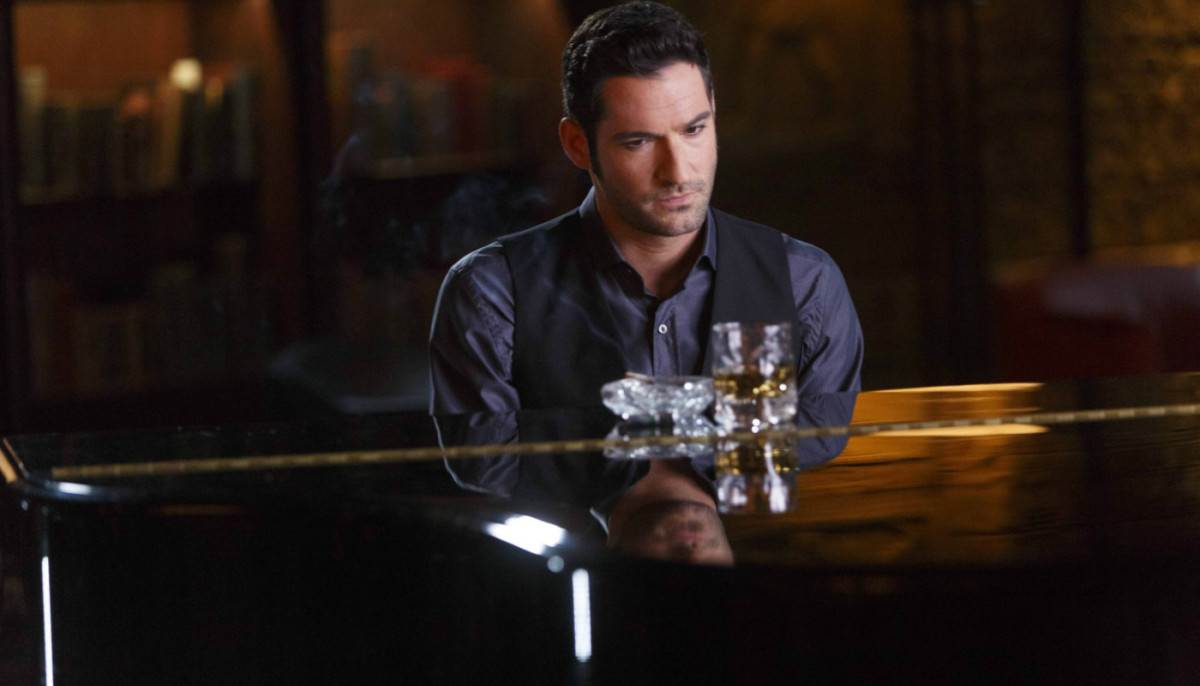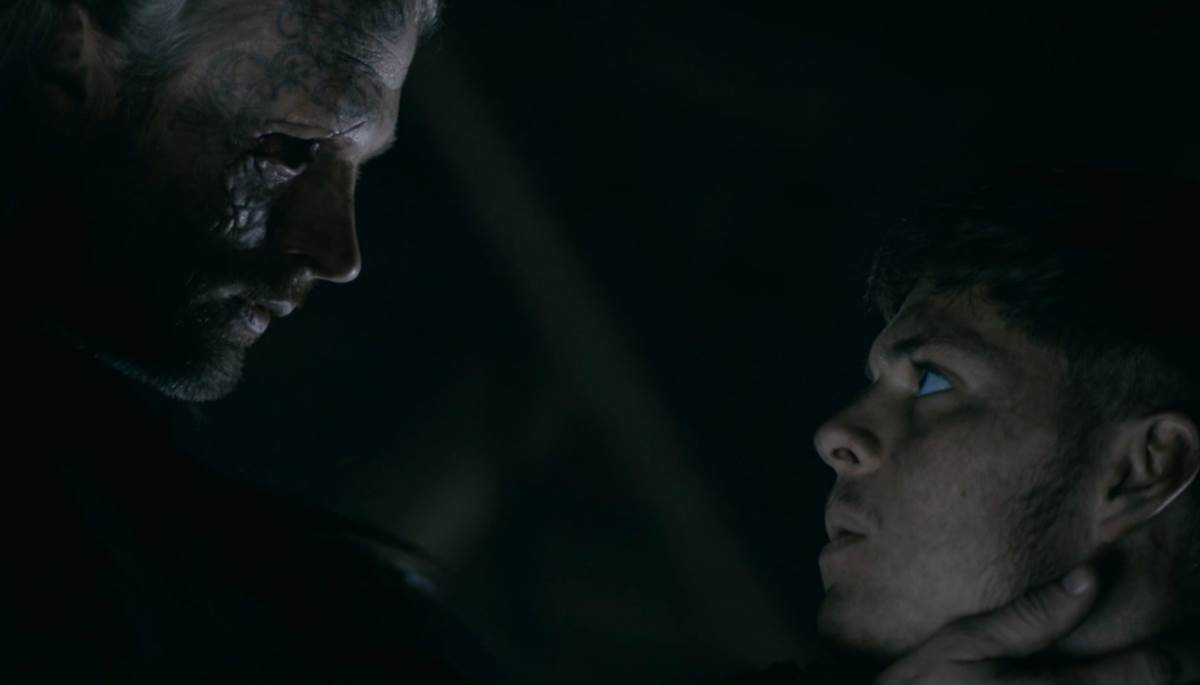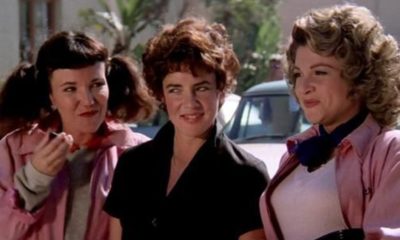The history of comedy is a wide, storied subject — and so CNN’s latest documentary series “The History of Comedy” gives each its due.
From executive producer Sean Hayes, “The History of Comedy” interviews modern comedy stars like Patton Oswalt and Sarah Silverman, alongside historic clips along the timeline, from Lenny Bruce and George Carlin’s “seven words you can’t say on television” to more recent fare.
“The History of Comedy” premiered its first two episodes at the Sundance Film Festival, showing the depth and range of the project: The premiere, “Going Blue” (airing Feb. 9), explores raunchy comedy like Carlin’s 7 Words, the origin of the term “blue,” and other foundations, while “Spark of Madness” (airdate to be announced) explores the darkness behind so many comedians’ personae.
Producers Todd Milliner, Christopher Cowen and Mark Herzog spoke with us at Sundance about those episodes and others, where they found all those clips, and what’s going to be explored in the rest of the series. Edited for clarity and length.
Screener: Are you guys funny?
Mark Herzog: I will tell you one of the things that we set out to do when we started making the series was not try to be funny ourselves. These comedians are great, that participated in interviews. The sitcoms that we showcased, the sketch comedy that we showcased, the standup that we showcased — that’s funny. We never tried to be funny ourselves. Let them do all the talking.
RELATED: ‘SNL’: To Aziz Ansari, with love
What made ‘Going Blue’ the right episode to begin the series?
Herzog: I think it’s the most provocative… We wanted to hit ‘em hard.
Christopher Cowen: Part of what we explore in that episode is First Amendment freedom of speech, which obviously for the CNN audience has a parallel — moreso than our “parody and satire” episode…
Herzog: Certainly we cover that with Lenny Bruce, and what he went through in the ‘60s, and what George Carlin went through in the ‘70s. I think we also just wanted to say what is funny. In this particular case, most of this stuff is maybe off-limits — but that line keeps moving, through time: What off-limits is. We just wanted to showcase what can be funny. Over time, things change.
What do you explore in ‘parody and satire’?
Herzog: First of all, we explore the difference between parody and satire.
Todd Milliner: It was super fun to have people try to define the difference between parody and satire — it’s the whole cold open. It’s pretty remarkable. There is a difference, and I’m not going to explain it — because Carl Reiner wouldn’t.
Cowen: We cover everything from the pantheon of Mel Brooks films, to the Zucker brothers, “SNL.” All those iconic parodies. We had an interview with Weird Al Yankovic. A lot of the other interview subjects said what Weird Al does is parody, and he said “Thank you.”
I’ve always thought parody is a kind of satire, but that not all satire is parody…
Milliner: That’s a great way to put it. Can we open the episode back up?
Herzog: Satire has a social comment to it. We have Adam McKay, and he defines it that way. Parody is making fun of. Satire has a social commentary to it.
Do you include ‘The Simpsons’ and ‘South Park’ in that episode?
Herzog: 100%.
Milliner: When you watch these episodes, they’re so packed with stuff. You could almost do a whole episode on just “The Simpsons,” “South Park” and “Family Guy.”
How about “The Daily Show” and “Colbert Report”?
Cowen: We have an episode called “Ripped From The Headlines” that obviously deals a lot with the monologues from a lot of the late night shows, and tracks Jon Stewart and Colbert.
Herzog: “The Daily Show,” Samantha Bee…
RELATED: Which Trump burn was the best of the 2017 SAG Awards?
I thought Colbert doing the Republican pundit character was the most relentless satire I’ve ever seen. He did it for nine years straight.
Herzog: We actually have a moment in the show where we see him with John Kerry. He said, “You know who I play, right? You know I’m an idiot.” He said, “Yeah, I understand.” So for a moment you see him out of character.
Back to ‘Going Blue’ — ‘blue’ has a practical origin.
Milliner: We learned little tidbits throughout the process. That was my most fun, learning… I had no idea what it meant.
Herzog: What I love about these shows is that not only do you get to remember some of the more famous comedians and their bits from the ‘60s and ‘70s, but you get a little history. So you understand where the term “going blue” comes from.
In our episode on women in comedy called “The Funnier Sex,” you get to learn about Jean Carroll — who I never really knew of — who was one of the first female stand-ups. She was rip-roaringly funny, in the ‘40s.
That’s another great topic. Do you get into the ‘women aren’t funny’ controversy with Jerry Lewis?
Cowen: That’s the thesis of the entire hour. It’s everybody basically taking it on saying, “That’s ridiculous.” You have great people from Paton Oswalt going, “What are you talking about they’re not funny? They’ve always been funny.”
We don’t really get into the fact that Jerry Lewis said that — but just the normal idea, that women aren’t funny, is crazy. We take it on head on.
Anyone try to make an actual case for the statement that women aren’t funny?
Herzog: No. I think we just down the way I think most people would. We’ve got great comedians in there, from Sarah Silverman to Elayne Boosler to Ali Wong…
RELATED: ‘Detroiters’ preview: A surprising, funny ode to kindness
Another revelation to me in “Going Blue” was George Carlin’s seven words you can’t say on television was completely made up? That wasn’t from the FCC?
Herzog: It was not an FCC issue. I think it was a moral issue. Most people just didn’t do it. And I think what happened after that was that it turned into something. I don’t know for sure if laws were written after that.
It was also interesting which words CNN bleeps. The obvious ones are bleeped, but “tits” and twat” are okay. What were your limits?
Herzog: CNN has a great standards and practices group that vetted every one of our shows. We made sure to stay within their limits.
Cowen: We also realize in that freedom of speech category, there are certain words that were appropriate. In the context of what that person was making a comedic comment about.
Herzog: If you watch Anthony Bourdain, sometimes there’s a couple “sh*ts” in there. It is cable news. They don’t adhere to broadcast, but they also don’t want to offend a wide audience. They’re just words.
What was the pool of archival footage you combed through for this?
Milliner: Holy moly.
Cowen: Thousands and thousands of hours. Our team — Steven Morrison, who’s our showrunner, and the whole producing team — were all clearly fans of comedy prior to this. What’s great about the projects we’ve done together is that it’s like getting a PhD in history. As we’re outlining and going through, if you’re doing a topic, you have to go all the way back to ancient Greece and bring it all the way present, pluck every little nugget in between.
Herzog: We have a great relationship with a lot of news outlets because we also produce the [highly acclaimed and similarly appointed] “Decades” series at CNN.
We get a lot of footage from ABC, NBC, CBS, Fox. Obviously we have a lot of standup. Standup comes from everywhere, from Netflix to HBO. It’s really about just remembering, “Oh yeah, there was that great Eddie Murphy standup thing,” and going back and finding it.
I remember Andrew Dice Clay’s ‘Arsenio Hall’ appearance — it was nice to see that again.
Herzog: It’s interesting how raw he was in that. He really started to cry.
By the way, we did reach out to him. It was a scheduling thing. He would’ve done it.
Milliner: That was one of the things — a lot of these folks still tour. We had a lot of folks that just couldn’t do the show. It would’ve been great to hear from Dice.
Was the ‘Arsenio Hall’ clip still in syndication somewhere?
Cowen: Our research team that worked on the Decades series, and this series, pull out every trick — from tapping into film transfers at the UCLA archives and paying to have them transferred, to actually going through HBO or Getty Images.
Herzog: What’s interesting is Arsenio didn’t do an interview with us — but he did an interview for “The Nineties,” to talk about his show in the ‘90s. The timing worked out.
I couldn’t help but think of the great comedians we’ve lost. Would you have gone to Garry Shandling?
Herzog: Oh yeah, 100%.
Milliner: That’s one of my favorite shows, “Larry Sanders.” Both were great, but I bought the collection of “Larry Sanders” on DVD.
Herzog: “It’s Garry Shandling’s Show,” we did focus on that when we did “The Eighties” — how monumental that was.
Milliner: I met him at a party once and he just looked at me and goes, “So producing, what’s that about?” Super, super nice guy and we had an interesting conversation.
Herzog: I think he was a mentor to a lot of comedians. Judd Apatow.
If you could have asked George Carlin anything, what would you have wanted to ask?
Milliner: Wasn’t it remarkable when he was in a suit? I can’t even picture him being that clean-cut! His comedy for me started with the seven words. Man, I’d just like to have a beer with him. I don’t care what we’d talk about.
Herzog: I would’ve asked him how he wrote his particular standup. There wasn’t one that I had not seen. I read all his books. How he came up with the wonderful alliteration he had… I would love to be a fly on the wall when he wrote something.
Milliner: And how did he pick something, and how long did it take? I imagine that stuff was laborious because it was such a symphony of funny.
Cowen: And he had the rote memory of his own writing. The internal rehearsals that he must’ve done.
What is the actual earliest instance of recorded comedy?
Herzog: If you noticed, in “Going Blue,” we had a moment of Eddie Cantor on film, but it was a talkie. Talkies came out in 1927, Al Jolson’s film [“The Jazz Singer”] but this was 1923. That was an experiment. I remember looking at the dates with our team and saying, “You’re six years off. The first talkie came out in 1929.” But it’s actually 1923 — so that’s the first recorded, potentially, comedy.
RELATED: It’s time to embrace ‘unfunny comedy’ for what it is: Grownup drama
Then going back to the Greeks, what’s the first documented comedy?
Cowen: It’s funny — one of the topics that we want to cover, God willing, in Season 2, is physical comedy. We were talking about the early iterations of Punch and Judy, the puppets that would beat each other up with hammers. That actually was an Italian story that Italians had stolen from the Greeks about a husband and wife fighting. I don’t know if that’s the earliest, but that’s one that’s stuck with me of how that gag has grown through the ages.
Herzog: There’s always been comedy.
Cowen: Cave drawings probably had a punchline.
So we’ve got ‘Going Blue,’ ‘Spark of Madness,’ ‘Parody and Satire,’ ‘The Funnier Sex…’ What are the other subjects?
Cowen: “Ripped from the Headlines.”
Milliner: “Cultural Divide.”
Herzog: …Which looks at culture humor, race or religion.
Milliner: “Real Life.”
Herzog: …The comedy of real life, which is sitcoms based on real life, standup based on real life. Jerry Seinfeld, for example.
Milliner: Politics.
Politics and “Ripped From the Headlines” are different?
Cowen: The “Ripped From The Headlines” episode at one point we were going to call “Too Soon.” It really is. It’s about those moments in time when a joke has literally been ripped and put into a monologue, or someone’s doing a a set about something that’s happened within 24 to 48 hours. The political episode is very specific to politics.
Herzog: Where we cover Lenny Bruce, Mort Sahl, Mark Russell who was a very soft political satirist. He’s still around. He did an interview with us but ‘60s, ‘70s, ‘80s was his era. We certainly get into Samantha Bee, Jon Stewart and “SNL,” certainly talking about this latest election.
Have you already started planning a second season?
Cowen: We have.
Milliner: We don’t know if CNN has! We’ll see.
Herzog: I think it’s a good time to laugh.
Milliner: I think we could all use a little breather.
“The History of Comedy” airs Thursdays at 10 p.m. ET/PT on CNN.
Source link



 Movies News4 years ago
Movies News4 years ago


 Celebrities8 years ago
Celebrities8 years ago


 Movies News8 years ago
Movies News8 years ago


 Celebrities7 years ago
Celebrities7 years ago




